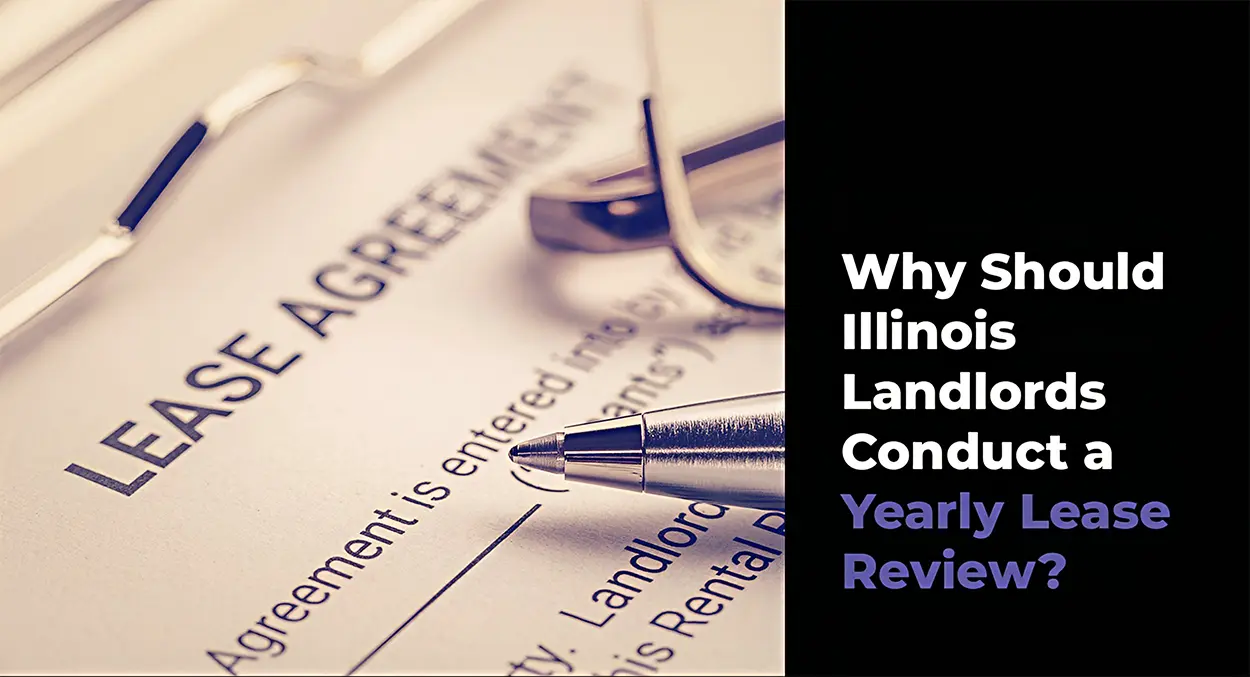- Landlord & Tenant Law
- Illinois
If you’re a landlord or rental property manager in Illinois, a yearly lease review isn’t just a “nice to have” – it’s risk management. Federal laws, State statutes, county ordinances, and city rules are adopted, amended, and rescinded regularly. Additionally, most legislative changes become effective on the first of the year. An autumn lease review gives you time to update lease forms, add required disclosures or addenda, and train on-site teams before January 1 of each year.
Why Lease Compliance Varies by Location in Illinois
Illinois leasing is jurisdiction specific. For example, Chicago’s Residential Landlord & Tenant Ordinance (RLTO) governs most residential rentals in city limits and requires attaching a summary of the ordinance to each rental agreement. The RLTO also includes detailed rules on security deposits, maintenance, and remedies that must align with lease language.
Outside of Chicago (and other home-rule municipalities with their own ordinances), Cook County’s Residential Tenant & Landlord Ordinance (RTLO) applies. It imposes specific notice and habitability standards while requiring certain lease terms and disclosures.
Properties outside of Cook County typically rely on statewide statutes and local codes, but for the most part, are governed by the terms of the lease. Landlords in these outer counties should use lease forms that are legally compliant and contain the most landlord-friendly provisions possible since there are less restrictions in these jurisdictions
What Does a Formal Attorney Lease Review Cover?
A comprehensive, attorney-led review typically addresses the following legal concerns:
- Jurisdictional compliance: Confirms each rental property’s governing framework is based on location (ex. Chicago RLTO, Cook County RTLO) and creates separate lease templates as needed.
- Red-flag audit: Identifies illegal or risky clauses (ex. inconsistent fees, improper deposit handling, defective notice language) under current law.
- Highlight missing provisions and disclosures: Identifies missing lease provisions and disclosures (ex. flood, lead-based paint where applicable, bed bugs, heating standards) that may be required by law or recommended as a best business practice.
- Rent & costs: Defines base rent and “additional rent,” including utilities, storage, parking, and pet fees, review legality of administrative and other fees, and conform rent concession language to Illinois statutory requirements.
- Lease terms & duration: Establishes the most beneficial renewal options and early termination rights, to the extent permitted by Illinois law or local ordinance.
- Security-deposit interest & handling: Ensures municipal and state regulations that set annual interest requirements are met, along with strict security deposit handling and notice obligations.
- Insurance & liability: Checks lease terms concerning renters’ property and liability insurance, waivers of subrogation, additional insured status, indemnities, etc.
- Commercial & residential alignment: Ensures your commercial lease (ex. office, retail, industrial) and residential lease are current and consistent with legislative requirements.
Legal Resource
New Illinois landlord/tenant laws often take effect January 1. From screening and fair-housing updates to required disclosures, Illinois routinely adopts changes that start with the new year.
Working with an experienced Illinois landlord attorney to conduct a lease review each fall allows landlord and rental property managers to edit their lease package, train staff, and update workflows before new or amended laws take effect renewals go out. Taking proactive steps helps prevent costly disputes, reduces liability, and protects rental investments before issues arise.
Contact our law firm if you have questions about a lease review or other landlord/tenant legal questions. You can reach KSN by calling 855-537-0500 or visiting our website at www.ksnlaw.com.
Since 1983, KSN has been a legal resource for condominium, homeowner, and townhome associations. Additionally, we represent clients in real estate transactions, collections, landlord/tenant issues, and property tax appeals. We represent thousands of clients and community associations throughout the US with offices in several states including Florida, Illinois, Indiana, and Wisconsin.


